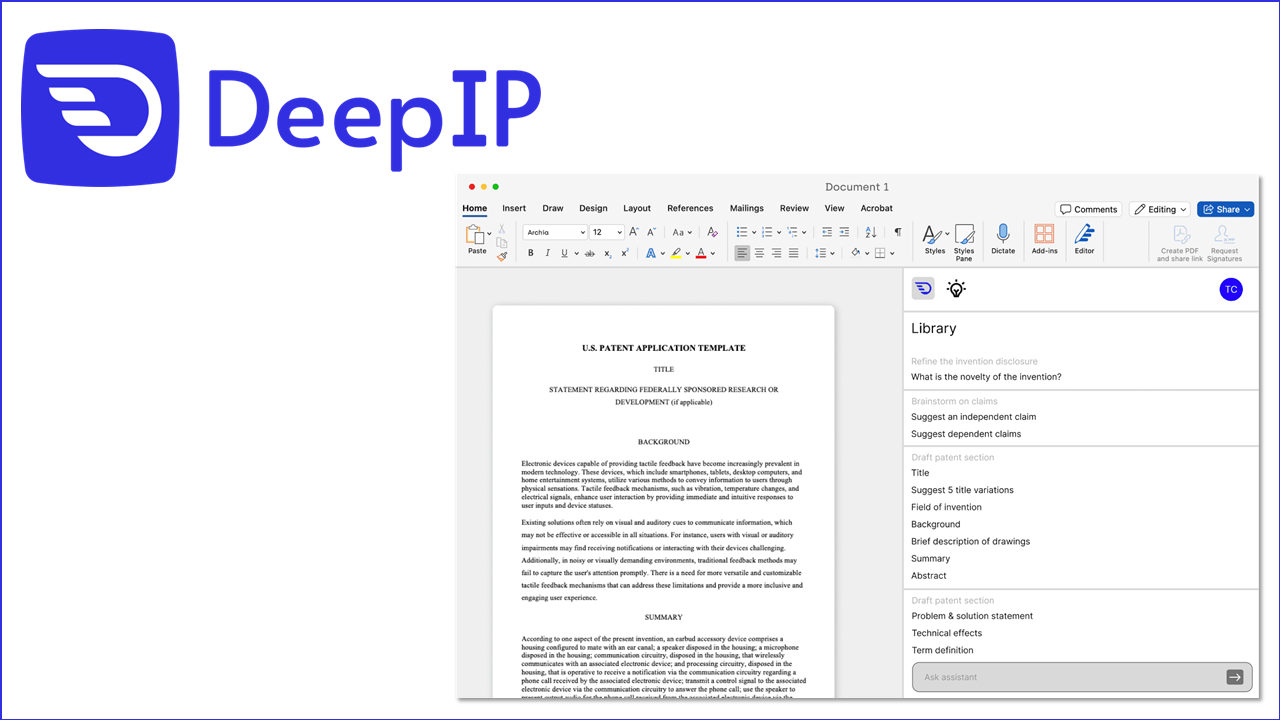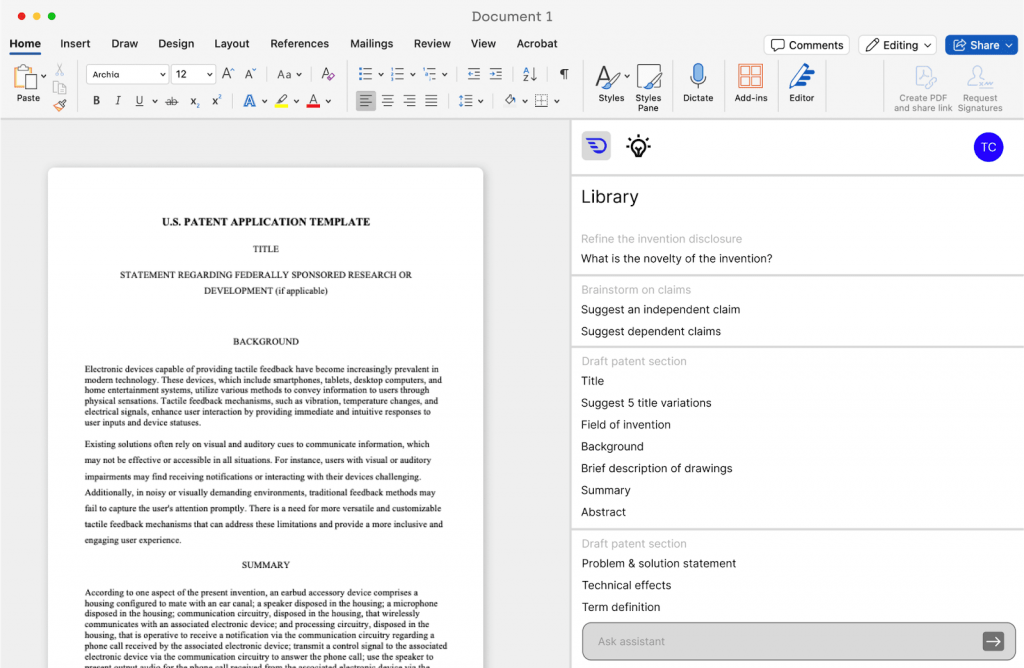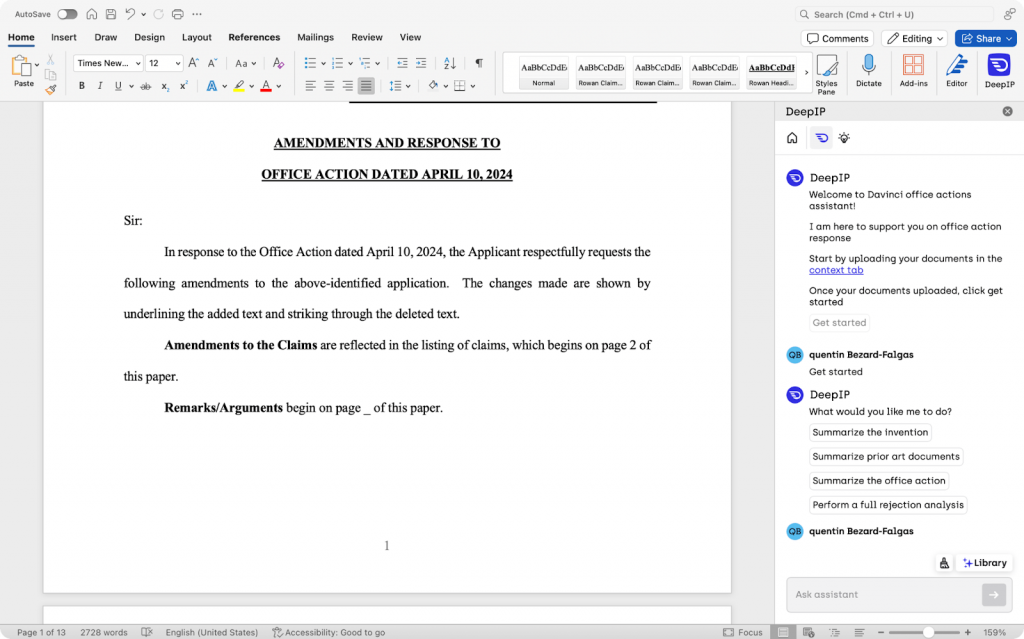Earlier this year, I wrote about the beta launch of davinci, an AI tool to assist intellectual property practitioners throughout the patent prosecution process. Today, that tool emerges from beta for general availability under a new name, DeepIP, and with a new direct integration within Microsoft Word.
DeepIP is an AI copilot that works directly within Word or as a web application to assist throughout the entire patent prosecution workflow, from patent preparation and drafting, to iterations and review, to responding to office actions.
It is, the company says, the first next-generation, AI-based patent assistant to leverage the most-advanced AI models while also upholding the highest security standards.
François-Xavier (FX) Leduc, co-founder and CEO of Kili Technology, parent company of DeepIP, said that while the product remains largely the same, the new name reflects the company’s ambition to go deeper into the patent practitioner’s workflow.
“In less than a year, davinci has become the leading patent AI drafting tool in the U.S.,” Leduc said. “By listening to the challenges and needs of top law firms and counsel, we have learned that we can delve even deeper into the patent practitioner’s workflow, helping them save more time and enhance quality with greater comfort and security.”
Using DeepAI
To use DeepIP for patent drafting within Word, the lawyer clicks on the DeepIP button on the Word ribbon to pop up a chatbot interface. After the lawyer enters the applicable data and queries, DeepIP cycles through various legal and inventor documents and graphic renderings to help the lawyer gain a deeper understanding of inventions.
DeepIP then provides relevant suggestions to assist in drafting and structuring claims, describes figures, and generates sections of the specifications. Additionally, DeepIP helps with reviews and the editing of the application to avoid errors and inconsistencies.
For office action responses, DeepIP processes both the patent application and prior art referred to by the examiner. Using AI, the tool evaluates the strength of the arguments mentioned in the office action and provides recommendations on responding. The recommendation includes whether to contest the response or change the claim based on key issues.
“AI is having a profound impact on the practice of IP law including patents, which has long been one of the most complex, manual areas of legal practice,” said Leduc. “We are proud to release DeepIP, the next generation of AI patent copilots, which adds the dimension of being embedded in Microsoft Word.”
The Word add-in is available through the Microsoft AppSource marketplace. The product is also available as a web application.
DeepIP is an exclusive Microsoft Azure partner that uses the trusted Azure cloud infrastructure. It is fully GDPR compliant and is SOC II Type 2 and ISO 27001 certified. Also, DeepIP says it does not retain any clients’ data for training purposes, adhering to a strict data segregation policy and a Zero Data Retention API.
DeepIP’s developer, Kili Technology Inc., is a company founded in 2018 in France that focuses on building high-quality data sets for training AI, and that has built AI products for such customers as SAP, Airbus, and Allen Institute for AI.
For more information about DeepIP or to request a trial, visit www.deepip.ai or email contact@deepip.ai.
 Robert Ambrogi Blog
Robert Ambrogi Blog

